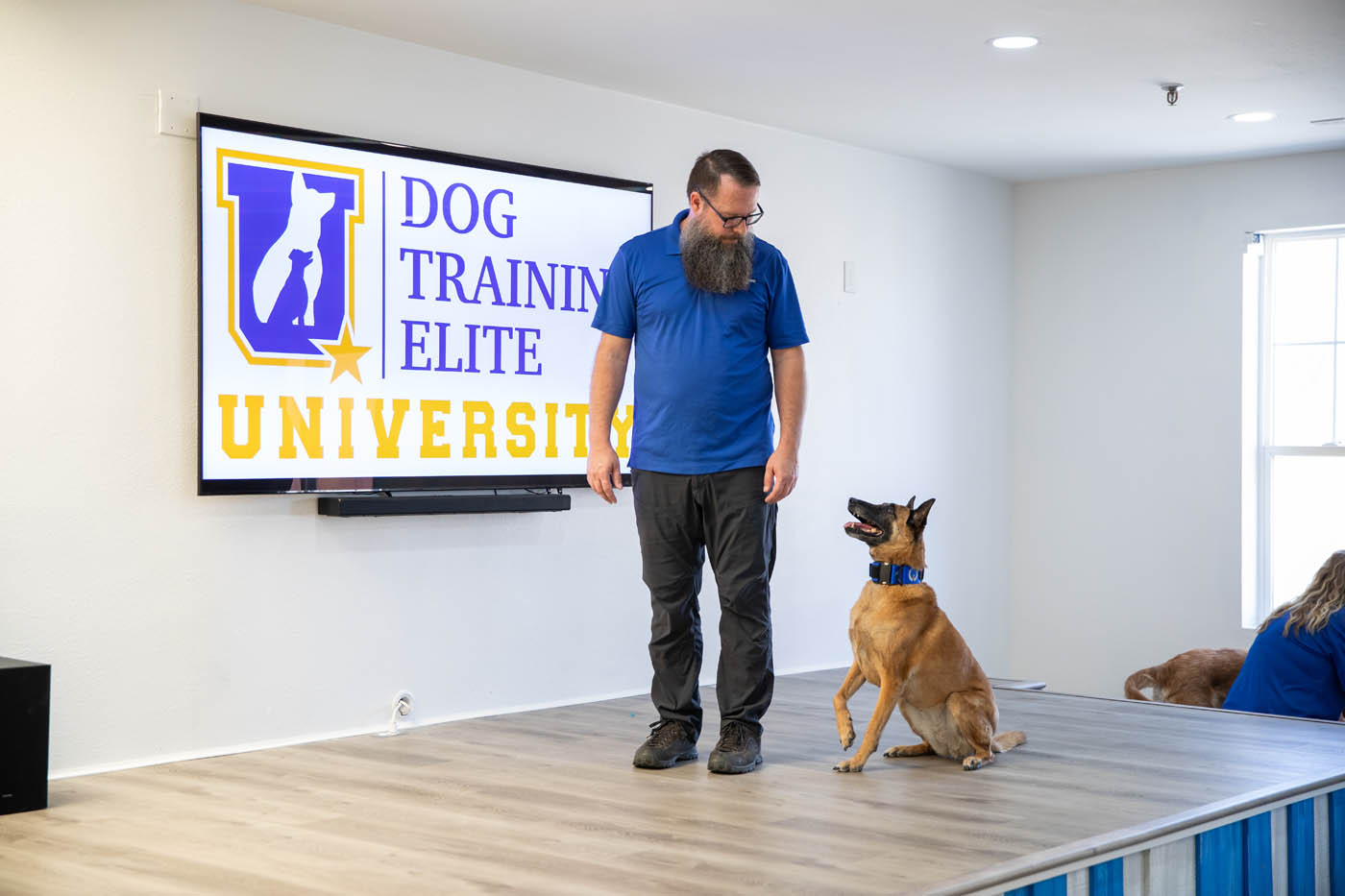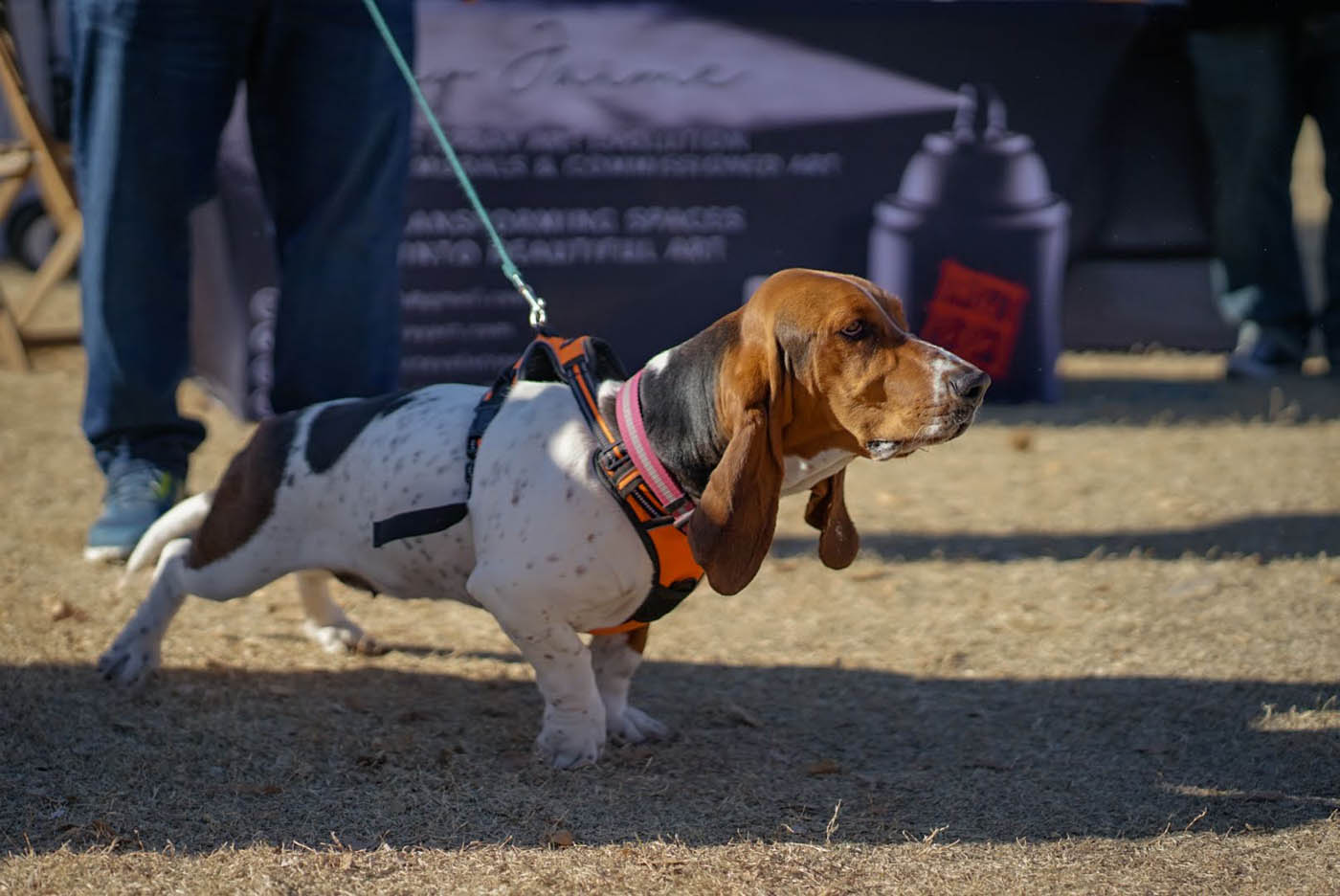The Advantages of Picking Dog Training Near Me for Tailored Solutions
The Advantages of Picking Dog Training Near Me for Tailored Solutions
Blog Article
Unlock Your Dog's Possible: Proven Canine Training Strategies for Success
Efficient canine training is a nuanced process that pivots on recognizing canine behavior and utilizing medically backed techniques. By integrating favorable reinforcement, developing clear commands, and prioritizing socializing, pet owners can grow an efficient partnership with their family pets.
Understanding Canine Habits
Understanding pet dog habits is vital for efficient training and promoting a favorable partnership between canines and their proprietors. A detailed understanding of canine body movement, articulations, and social communications is crucial for recognizing their feelings and demands. Canines interact largely with non-verbal cues; for instance, a wagging tail may suggest enjoyment, while pinned ears can signal worry or submission.

Furthermore, environmental variables play a significant function in forming a dog's actions. Modifications in routine, brand-new surroundings, or the presence of strange individuals can lead to tension or anxiety in pet dogs. Acknowledging these triggers makes it possible for proprietors to minimize unfavorable responses and develop ideal training strategies.
Eventually, a deep understanding of canine habits lays the structure for successful training methods, boosting both habits and the total bond between the canine and its proprietor. dog training near me. This understanding is essential for promoting a well-adjusted, satisfied canine companion
Favorable Support Methods
Effective training counts greatly on favorable support strategies, which have been revealed to yield substantial results in forming preferred actions in dogs. This approach involves compensating a pet for exhibiting specific habits, consequently raising the probability that these actions will be repeated. Benefits can take various kinds, consisting of treats, praise, toys, or play, relying on what inspires the private dog.

It is necessary to progressively phase out benefits as the pet dog finds out the actions, transitioning to intermittent support. This strategy preserves the behavior in time while preventing reliance on constant incentives. By concentrating on positive support, instructors can cultivate a trusting connection with their pets, advertising a cooperative and healthy training setting that improves overall obedience and efficiency.
Establishing Consistent Commands
An essential element of successful pet training is the facility of regular commands. Consistency in commands is crucial for effective communication between the trainer and the pet dog. When commands are consistent, canines learn to associate details words with desired habits, which speeds up the training procedure and boosts understanding.
To develop constant commands, it is essential that all relative make use of the same terminology and motions. If one individual utilizes "rest" while one more states "rest down," it can produce confusion for the pet dog. Select clear, distinctive words for commands and make sure every person included in the dog's training sticks to these options.
Enhance commands via constant practice, making certain that the pet dog gets enough possibilities to respond appropriately. When a canine successfully adheres to a command, prompt positive reinforcement needs to adhere to.
Lastly, be person. Establishing consistent commands takes time and effort. With devotion and quality, you will help your dog develop a strong understanding of expectations, eventually leading to a well-behaved companion.
Socializing and Exposure
Mingling a pet is vital for promoting a well-adjusted and positive companion. This process involves revealing your pet dog to a variety of atmospheres, individuals, and various other animals to establish their social abilities and versatility. Early socialization, preferably between the ages of 3 to fourteen weeks, is vital, as it prepares for a canine's future habits.
Throughout socializing, purpose to provide positive experiences in various settings, such as parks, active streets, and homes with various other family pets. Introduce your canine to numerous stimulations, including noises, views, and scents, ensuring that each experience is satisfying. This direct exposure helps alleviate anxiety and stress and anxiety, leading the means for a much more durable canine.
Taking part in controlled team play sessions with other dogs can additionally improve social abilities, educating your pet dog appropriate interactions and boundaries. Constantly check your canine's convenience level during these experiences, slowly raising direct exposure as their confidence expands. Remember, the objective is to create an all-around animal that prospers in varied situations, advertising an unified connection with both people and various other pets. Prioritizing socialization will significantly add to your canine's general joy and behavior throughout their life.
Conquering Common Educating Difficulties

An additional frequent issue is disturbance. Pet dogs might battle to concentrate in unknown or active settings. Gradually desensitize your dog to diversions by starting training in a quiet environment and gradually introducing even more stimulations as they become skillful (dog training near me). Favorable support techniques, such as deals with and praise, can keep inspiration and emphasis.
Additionally, behavior problems like leaping or excessive barking can end up being discouraging. Address these by instructing alternate habits, such as official statement resting smoothly when welcoming visitors. Uniformity and persistence are vital; enhance preferred behaviors continually and stay clear of scolding, which can bring about confusion.
Lastly, acknowledge that each pet is unique, and training timelines might vary. Tailor your strategy to your canine's individual needs, and look for professional advice if essential. With determination and the appropriate approaches, getting over these difficulties can cause a well-trained, pleased canine companion.
Verdict
To conclude, unlocking a pet's prospective demands a comprehensive method that incorporates an understanding of canine actions, the application of favorable support strategies, and the facility of constant commands. Early socialization and exposure to varied atmospheres additionally improve a pet's adaptability and self-confidence. By attending to typical training difficulties with customized techniques and perseverance, a cooperative and harmonious partnership between canine and handler can be cultivated, you can try these out inevitably resulting in a well-behaved friend with the ability of growing in various situations.
Effective pet dog training is a nuanced procedure that hinges on recognizing canine habits and employing scientifically backed strategies.Comprehending dog behavior is necessary for efficient training and promoting a positive relationship in between dogs and their owners.Efficient training depends heavily on favorable reinforcement techniques, which have been shown to yield substantial results in shaping wanted behaviors in canines. When commands are uniform, dogs discover to link details words with wanted behaviors, which accelerates the training procedure and improves understanding.
In final thought, unlocking a pet dog's prospective requires a thorough approach that integrates an understanding of canine habits, the application of positive support methods, and the facility of consistent commands.
Report this page